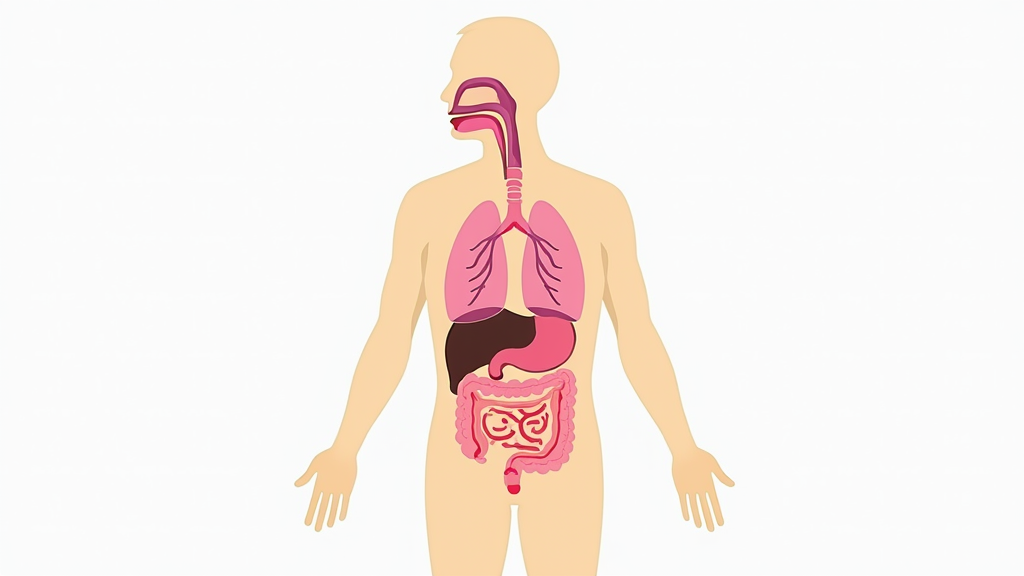Cancer can feel like a huge and confusing topic when you first think about it. Many people worry about catching it early and often wonder what changes they should watch for. Early detection is very important, and knowing what signs to look for gives you a much better chance at getting the right care. I’m sharing what I have learned, along with practical examples, so you can feel more confident in recognizing the top 10 early signs and symptoms of cancer everyone should know about.

Why Recognizing Early Cancer Symptoms Matters
People often put off checking on new health changes, hoping it’s nothing serious. Cancer symptoms can start off subtle, and many early signs are easy to mix up with other, less serious problems. Still, catching cancer early gives you the best shot at successful treatment. Even though not every symptom means cancer, understanding what changes deserve attention helps me and so many others feel more in control of our health. Noticing and understanding these early signs can truly set your mind at ease, or prompt you to catch things before they get worse.
Cancer Doesn’t Always Show Up With Big Changes
Cancer may not always cause pain or obvious problems right away. Sometimes, the symptoms appear in areas far from where the cancer started. It’s important to know that these signs can be general and very simple to overlook. Staying alert to changes and checking in with a doctor if something isn’t right is essential for an early diagnosis. There are hundreds of cancer types, each with different warning signs, but many of the symptoms overlap. Some symptoms are more connected to certain cancers, but paying attention to anything that feels off is always worth it.
The Top 10 Early Signs and Symptoms of Cancer
Most of these symptoms could be caused by many things, but if you notice them lasting for more than a couple of weeks, it’s important to get checked. Here are the top 10 early warning signs I believe everyone should keep in mind:
- Unexplained Weight Loss
If you lose 10 pounds (about 4.5 kg) or more suddenly without changing your eating or exercise habits, it could signal a problem. This symptom often shows up in cancers like those of the pancreas, stomach, esophagus, or lungs. Even if it turns out not to be cancer, sudden weight loss always needs to be looked at. - Persistent Fatigue
Almost everyone gets tired sometimes, but the fatigue connected with cancer feels very different. It usually does not improve with extra sleep or rest. Cancers like leukemia, colon, or stomach can cause fatigue due to blood loss, but even before obvious blood loss or tumors, cancer can make you feel deeply worn out. - Lumps or Thickening Under the Skin
Notice any new lumps, bumps, or firm spots under your skin, especially in the breast, testicle, neck, or armpit. Most lumps are harmless, but don’t ignore any that grow, are firm, or stick around. Get a professional to check any persistent changes—even small ones. - Changes in Skin
Your skin is your body’s largest organ and is quick to show changes. Keep an eye out for new moles, sores that don’t heal, yellowing of the skin or eyes, or noticeable changes to old moles. Skin cancer, like melanoma, often begins with a skin change. Even very small changes can mean you should ask your doctor, especially if skin cancer runs in your family or you get lots of sun exposure. - Persistent Cough or Hoarseness
If a cough sticks around for more than three weeks or your voice stays hoarse, it’s time to get it checked. While most long term coughs are from infections, a lingering cough can mean lung or throat cancer. This is even more important if you smoke or have a long history of smoking. - Unusual Bleeding
Any unexpected blood is a reason to see a doctor. Blood in your stool or urine, or if you cough up blood, can signal colon, bladder, kidney, or lung cancer. For women, bleeding between periods, after sex, or after menopause can mean uterine or cervical cancer. Even a small spot is worth quick follow-up. - Changes in Bowel or Bladder Habits
Going to the bathroom more or less than usual, straining, or feeling like you can’t finish can point to issues with the bladder, prostate, or colon. Permanent diarrhea or constipation or any major change in your stool that lasts longer than a few days needs to be checked. Paying attention to these changes and telling your doctor helps you get to the root of things faster. - Pain That Doesn’t Go Away
Many illnesses cause pain, but cancer pain is different because it doesn’t get better. Persistent, unexplained pains, especially in your bones or back, can be the first signs of cancers like breast, prostate, or lung that have spread. If headaches or aches don’t get better after a normal amount of time, don’t wait to bring it up. - Trouble Swallowing or Ongoing Indigestion
Pain when swallowing, food sticking in your throat, or stubborn heartburn can be signs of throat, esophagus, or stomach cancers. Everyone gets indigestion once in a while, but if it’s frequent or gets worse, talk to a professional. - Changes in the Mouth
Sores inside your mouth, white or red patches that won’t heal, or swelling and lumps are things to notice. Oral cancer risk goes up with tobacco and heavy drinking, so it’s extra important to look carefully if you’ve ever used those products.
Which Symptoms Are Linked to Which Cancers?
People often want to know if certain symptoms are tied to specific cancers. While this isn’t a full list, here are some general trends I’ve picked up on:
- Lung cancer: cough, chest pain, shortness of breath, or coughing blood
- Breast cancer: new lumps, thickening, or skin dimpling on the breast
- Colorectal cancer: changes to bowel habits, blood in stool, or belly pain
- Prostate cancer: trouble urinating or blood in urine
- Leukemia and lymphoma: bruising, constant tiredness, swollen glands, persistent infections
- Skin cancers: new or changing moles, or sores that won’t heal
Keep in mind, no list can cover every case. If something feels off or different to you, don’t wait around—ask your doctor sooner rather than later for peace of mind.
Common Noncancer Causes of These Symptoms
These symptoms are common in daily life from all kinds of reasons—not just cancer. Infections, stress, injuries, digestive issues, or hormone changes can all trigger pain, tiredness, or skin changes. The only way to tell the difference is to get checked out. Most of the time, it’s nothing serious, but your doctor will help sort out what’s normal and what deserves more testing. Don’t try to guess on your own; when in doubt, get checked.
How Doctors Check Out Early Symptoms of Cancer
If something keeps bothering you, a healthcare provider will likely start by asking about your family’s health history, your personal habits, and your symptoms. They’ll examine you and may run basic blood or urine tests first. Depending on what you describe, you could also need an ultrasound, X-ray, CT, or endoscopy so the doctor can get a closer look inside. Finding a lump or strange tissue often leads them to a biopsy, which is when they take a tiny sample for lab testing. That sample gives the clearest answers about whether something is cancerous or not.
Who Is Most at Risk for Early Symptoms?
Cancer can happen to anyone, but some people are at higher risk. Your odds go up with age, family history, genes, certain habits, or exposure to chemicals and the sun. If you fit into any high-risk group, it’s even more vital to notice little body changes. But young, healthy people shouldn’t ignore new problems either—anyone can face cancer at any stage of life.
When to See a Doctor
Here’s what I always follow: if a new symptom doesn’t go away after two to three weeks or starts to get worse, see your doctor. Sudden bleeding, a new lump, or mouth sores that don’t heal should always get checked soon. It’s better to get professional reassurance than to let worries drag on and miss something that can be treated.
Living With New Symptoms: What Helps
The wait to find out what’s going on is tough. I recommend writing down what changes you notice and what seems to make them better or worse. Bringing notes to your appointment helps the doctor catch everything. If you feel anxious, talking things through with trusted friends or joining support groups can really give comfort. Open communication with your medical team and loved ones helps you get answers and feel less alone while you wait.
Frequently Asked Questions
Question: Are most early cancer symptoms painful?
Answer: Most early symptoms aren’t painful. Symptoms like lumps or fatigue are often noticed before there’s pain. Even so, pain that won’t go away should still get checked out.
Question: Can I rely on self-exams for early cancer signs?
Answer: Self-exams help you pick up body changes, such as breast or skin issues, but they don’t replace professional screenings. Always tell your doctor about any concerns.
Question: Do all cancers show symptoms in the beginning?
Answer: No, some cancers don’t show any symptoms until they’ve grown or spread. That’s why keeping up with regular screening and checkups is key, especially for people with extra risks.
Question: How can I tell if my symptoms are cancer or something else?
Answer: Many early cancer symptoms overlap with common health problems. Only a professional can say for sure, with or without testing. But if symptoms are sticking around, or you notice more than one at the same time, don’t delay getting checked out.
How to Lower Cancer Risk and Catch It Early
Here are some daily habits that I follow to make cancer less likely and to pick up problems sooner rather than later:
- Staying away from tobacco
- Eating plenty of fruits and veggies
- Getting regular movement and exercise
- Protecting your skin from sunburn
- Staying up to date with screening tests, such as mammograms, Pap smears, colonoscopies, and full skin checks
- Knowing your family health history and talking honestly with your doctor about it
When you do these things and stay tuned to new body changes, you’ll feel more prepared and less worried about cancer risk. Inviting these steps into your day can support your well-being and keep you focused on your health.
Support and Hope for Those Facing Possible Cancer Symptoms
Being worried about cancer symptoms is totally normal. I have seen that acting quickly, talking things out with others, and trusting reliable medical advice can make this whole process a little easier. Survival rates are higher than ever, thanks to early detection and new treatments. Many people go through cancer and return to full, happy lives. I encourage anyone with new symptoms to ask for help right away and use all available support—from doctors to friends and local resources. No matter where you are in this ride, real conversations and strong support can pull you through every phase.
